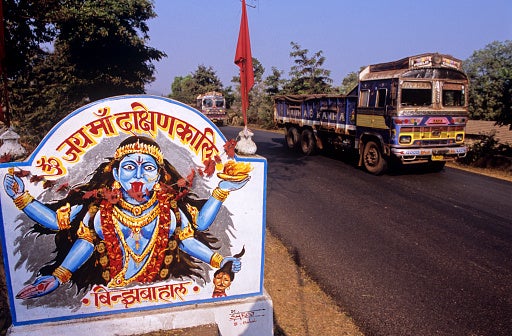The Top 10: Indian English Words
The most evocative and unexpected words of Indian origin


We did Yiddish Words four years ago, which prompted Alan Robertson to suggest Scottish Words last year, which I described as “the best of the vocabulary of one of the countries of my childhood”. Alan also suggested this list, of words originating from the other country of my childhood.
1. Bungalow: Patrick Kidd was told as a child it was so called because they bunged a low roof on it, but actually it just means a Bengal-style house. Baghwallah added: “In British English it means a single storey, small dwelling, whereas on the subcontinent it suggests a grand house. Cot is a similar case: a normal Indian bed is a baby’s crib in British English.”
2. Cushy: from the Urdu for pleasure. Nominated by Ian McRobert.
3. Doolally: from the Indian town of Deolali, which had a military sanatorium. Nominated by Alan Robertson, Elizabeth Wilkins, Elvin Mullinger and Bruce Napier.
4. Juggernaut: originally a huge wagon bearing a Hindu god. Thanks to Robert Boston.
5. Prepone: by analogy with postpone, meaning to bring something earlier in time. “No real British equivalent,” noted Niall Litchfield. This is really an Indian English word, rather than an English word of Indian origin, but I like it.
6. Pukka: genuine, respectable. Hindi pakka, “cooked, ripe, substantial”. The opposite of pukka is cutcha, pointed out Robert Fenner.
7. Punch, as in the drink, because it had five ingredients. I can still count to five in Hindi: ek, do, teen, char, panch.
8. Pundit and guru: “Would a current affairs researcher who excels at finding experts become known as a pundit guru? Maybe I should consult someone with strong opinions on these things, like a guru pundit,” said Alan Robertson.
9. Pyjamas: Urdu pay, leg, and jama, clothing. Thanks to Graham Kirby. Toby Lloyd added dungarees (from Hindi dungri, cloth), and asked: “Why all the trouser synonyms?”
10. Thug: “Originally a member of the cult of Thuggee, robbers and murderers who worshipped the goddess Kali, roaming the country to find and then dedicate victims to her,” said Robert Boston.
Dinghy and shampoo had already featured in a supplement to one of my stranger Top 10s: words that seem to come from one language but actually come from another.
That list also included veranda, which I ruled out of today’s Top 10 because it comes from Portuguese (via India). Blighty was also disallowed: it is an alteration of Urdu bilayati, wilayati, “foreign, European”, from Arabic wilayat, wilaya, “dominion, district”.
Paul T Horgan drew to my attention the Hobson-Jobson dictionary of Anglo-Indian words, 1886, which has been made available in full by the Internet Archive, which is, as he said, “an invaluable repository of knowledge akin to the Great Library of Alexandria”.
Next week: songs on albums that don’t sound like the others, such as “Interstellar Overdrive” from Pink Floyd’s Piper at the Gates of Dawn
Coming soon: unrealistic clichés in TV dramas, such as someone leaning against a door after closing it.
Your suggestions please, and ideas for future Top 10s, to me on Twitter, or by email to top10@independent.co.uk



Join our commenting forum
Join thought-provoking conversations, follow other Independent readers and see their replies